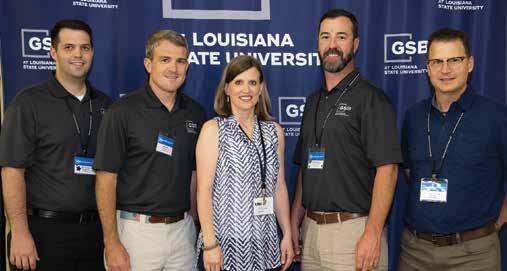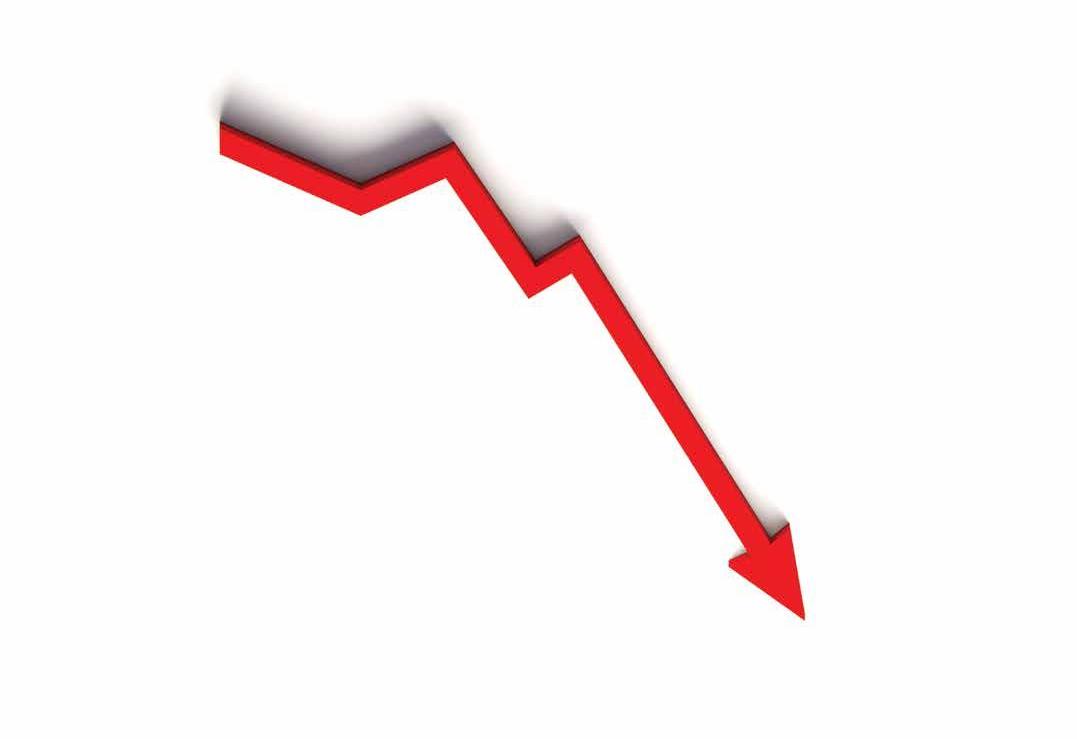
4 minute read
Local Resources Matter More Than Ever After COVID-19 by Arkansas State Senator Bruce Maloch
when you have spent 35 years as a banker in a community like Magnolia, served in the state senate and house, practiced law, and run a cattle ranch, it’s easy to think you have seen it all. But then COVID-19 came along, and we were re
minded that none of us had ever seen anything like this.
The virus was different from any previous national crisis because with COVOD-19 we were all threatened no matter where we live. But as summer arrives, we are starting to put this behind us. We are finding our way toward a new normal after a spring that saw schools close, businesses damaged, and forced us all to retreat to our homes.
In March, I was asked to help with the process of approving the release of emergency funds from the $173 million-dollar COVID-19 Rainy Day Fund. I have worked with Governor Hutchinson and legislative leaders to continue to make smart decisions to get funding where it can best help protect the state. We have worked together to be fast and innovative in finding solutions to new problems, and we tried hard not to respond like a bureaucracy.
This was a health crisis but make no mistake, it is also an economic crisis the likes of which we had never seen. Unemployment claims were filed at a record rate, and small businesses in every Arkansas community are still struggling with the fallout.
Right now, local banks continue to play a key role in providing the stability any community needs to rebuild. Many restaurants have reopened, and it’s nice to finally be able to greet our neighbors on downtown sidewalks as local shopping comes back. Arkansas bankers remain in the middle of this effort as they process and service loans that are channeling federal funds to individuals and businesses. As Governor Hutchinson asked state government to do, bankers have in many cases put aside traditional ways of doing things to expedite the distribution of federal stimulus funding.
With summer arriving, we can refocus on things that will be critical to bringing our economy back. One of those is the November 2020 passage of Issue 1. This Issue 1 will extend a sales tax that provides $86 million annually to mayors and county judges to make local decisions about funding roads. Statewide, Issue 1 would generate more than $8 billion in economic activity over the next decade while creating 3,600 jobs and improving 7,000 miles of roads.
Issue 1 will not only help with economic growth, it will help us create safer and more efficient highways, county roads, and city streets. It will also be an important part of our rebuilding process as every dollar spent on road funding in Arkansas turns over between three and five times in local economies. Companies that work on our roads hire skilled labor, buy pickup trucks at local dealerships, and buy lunch at the Main Street café. Investment in infrastructure helps the local economy long after a crew repairs an old bridge or opens a new road.
Before COVID-19 arrived, the defeat of Issue 1 would have meant communities and counties were looking at a 30% reduction in local road budgets. Columbia County alone would face a loss of over $800,000 annually, an amount I know our county judge and mayors could not stand to lose. Under normal circumstances that would be difficult for any community to deal with, but when our economy shut down in March, counties and municipalities lost millions in sales tax revenue because people took months off from shopping, eating out, or putting gas in their cars.
If you combine the economic damage from the virus, with a potential failure of Issue 1 to extend the sales tax, we would be looking at a catastrophic budget situation.
COVID-19 has prompted some of us to think about infrastructure issues in a different way. In the earliest days of the crisis, as everyone rushed to the grocery store to stock up on groceries and cleaning supplies, the supply chain that provides for all of us was threatened. But ultimately it held together and allowed us to buy the groceries and prescription drugs we needed to keep our families safe. The Arkansas system of interstates, county roads, and city streets allowed truck drivers to bring us the essentials of life. Truck drivers who put aside their own health concerns, and left their own families, to help the rest of us. It is not overstating the case to say the supply chain operating on our roads is what held us together.
As we come out of this historic economic shutdown, I’m proud of the leadership of bankers across the state as we helped our communities get through this crisis and now back to work.
My time at Farmers Bank & Trust Company, and my years as a quorum court member, have taught me that local leaders understand places like Magnolia far better than people who live elsewhere. We will need local control, and local resources, to put our damaged economy back together.
Issue 1 will help with that as it generates $290 million annually to help make our 16,000 miles of roads safer and better.
Bruce Maloch is a cattle rancher and an Arkansas State Senator representing Senate District 12. He is the Vice-Chairman and General Counsel at Farmers Bank and Trust in Magnolia. Maloch was recognized as Legislator of the Year by the Arkansas Realtors Association, Person of the Year by the Arkansas Municipal League and has been named one of the top ten legislators by Talk Business magazine.
Branch Automation














